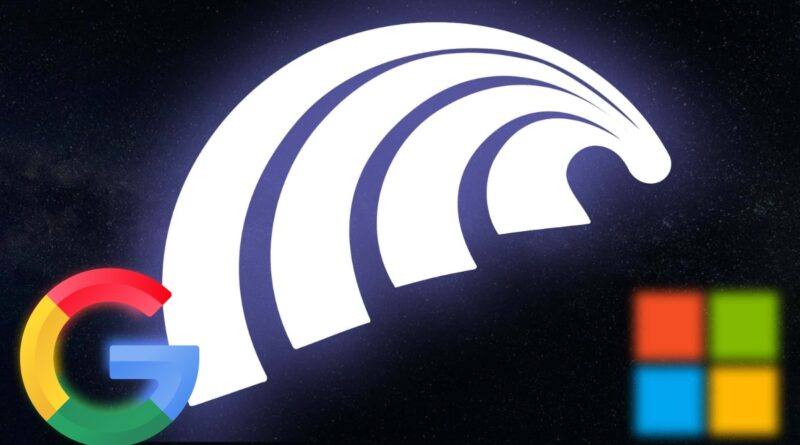Google’s Nightmare: The Emerging Comet Makes Chrome Feel Like Explorer
WFY Bureau Desk | Science & Technology | August 2025
The Comet Effect: Is Google’s Chrome Losing Its Shine?
For years, Google’s Chrome browser has ruled the internet like an unchallenged monarch. It outpaced rivals, captured market share across devices, and became the de facto gateway to the World Wide Web. But in 2025, a curious ripple has begun to disturb the waters, a new browser named Comet, created by Perplexity, has quietly taken flight. Not just another web interface, Comet combines cutting-edge AI with fluid browsing, and in doing so, it questions what a modern browser should really be.
As tech observers now ask whether Google has become the “new Microsoft” in the browser space, a slow-moving giant being overtaken by a smarter upstart, the comparison feels more relevant than ever. Much like Google once defeated Microsoft’s Internet Explorer with speed, simplicity, and sync, Comet is now challenging Chrome with intelligence, agency, and context-awareness.
So what exactly is Comet? How does it compare with Chrome, Edge, and others? And what does its rise say about the shifting centre of the internet?
From Search Bar to Smart Agent: How Browsers Have Evolved
Web browsers were once simple windows to the internet. In the early 2000s, Microsoft’s Internet Explorer reigned supreme until it was unseated by Mozilla Firefox and later decisively defeated by Google Chrome, which launched in 2008. Chrome combined minimalism with high performance, extensions, and synchronisation across devices—creating a browser that felt both light and powerful.
Today, Chrome holds around 64% of global browser market share (as of mid-2025), with Apple’s Safari, Microsoft’s Edge, and Mozilla Firefox trailing behind. But user needs have evolved. The internet is no longer just a place for reading and searching—it is a workspace, a classroom, a shopping mall, a theatre, and a digital assistant all rolled into one. In this new ecosystem, static search boxes feel limiting. What users increasingly want is a co-pilot, a smart, responsive assistant built into their browsing experience.
That’s exactly where Perplexity Comet comes in.
What Is Comet, and Why Is It Different?
Comet is a new browser developed by Perplexity.AI, a startup known for its conversational search engine. Perplexity gained popularity as a cleaner, more contextual alternative to Google Search—delivering direct, summarised answers with citations instead of long lists of links. In 2024, it began integrating deeper AI functionalities, and by 2025, it launched Comet: an agentic browser that combines traditional browsing with embedded artificial intelligence.
Key features of Comet include:
- Conversational AI agent: At the heart of Comet is a powerful assistant that can answer questions, summarise pages, schedule tasks, and even act on your behalf across emails, calendars, and websites.
- Search Redefined: Instead of navigating dozens of tabs, Comet offers direct, context-rich answers with source citations—essentially eliminating the need to hop between results.
- Automation: From booking appointments to filling forms, the browser can carry out actions using AI-driven task automation.
- Personal integration: Comet connects to tools like your calendar, email, and file storage, allowing for a more personalised, context-aware experience.
In essence, Comet shifts the browser from being a passive window into an active participant—a change that could fundamentally reshape how we interact with the web.
The AI-First Paradigm: Comet vs. Chrome
The contrast between Comet and Chrome highlights the two companies’ underlying philosophies.
Google Chrome, while reliable and fast, remains largely a traditional browser. Even with its Gemini AI models and tools like Google Overview or AI-based summaries in Search, the AI is often layered onto existing workflows. Comet, in contrast, builds AI into the core experience, making it feel less like a tool and more like a partner.
In fact, many users have begun noticing a reversal of roles: Google is now the one prompting users to switch back from Comet, with promotional banners and nudges, a tactic once employed by Microsoft for Edge. It suggests that Google now perceives Comet as a real threat, not just another browser.
Strengths and Weaknesses: A Comparative Snapshot
| Feature | Google Chrome | Microsoft Edge | Perplexity Comet |
| Market Share (2025) | ~64% | ~5.5% | <1% (Beta phase) |
| Performance | Fast and stable | Optimised for Windows | Light and responsive |
| AI Integration | Gemini add-ons, Google AI | Copilot AI | Core to experience |
| Privacy Controls | Good, but ad-focused | High (tracking prevention) | Strong emphasis on transparency |
| Task Automation | Limited | Basic (via Bing AI) | Advanced & built-in |
| Search Experience | Link-based with summaries | Bing-powered AI answers | Conversational, with citations |
| Cross-Device Sync | Seamless with Google Account | Microsoft Account sync | In development |
| Commercial Ecosystem | Deeply integrated (Gmail, Docs, Ads) | Linked to MS Office & Azure | Currently standalone |
While Chrome remains the standard for performance and scale, Comet’s appeal lies in innovation, usability, and intelligence. Users aren’t just browsing—they are collaborating with their browser.
Why Google Should Be Worried
To understand why Comet matters, it helps to understand what Google’s real business is: not browsers, but ads. Google earns most of its revenue through advertising tied to search behaviour. Chrome is a delivery system for those searches, and Google’s dominance in browsing has long helped protect its search monopoly.
Perplexity changes that dynamic. With its own AI-first search model, it reduces dependence on traditional search engines. Instead of typing “best laptops under ₹60,000” into Google and browsing ten websites, a Comet user might receive a curated, cited summary within seconds. That user might never see a search ad.
In 2025, Google launched its AI Overview and Gemini-based tools to counter this shift. But their placement within Google Search, rather than inside the browser, keeps them one step behind in user flow. Comet, on the other hand, starts with AI. It doesn’t adapt, it invents.
Microsoft Edge: A Quiet Competitor
While Google and Perplexity spar publicly, Microsoft Edge remains a quiet but steady player in this space. Built on Chromium (ironically, the same open-source engine as Chrome), Edge integrates with Copilot AI, Microsoft’s suite of productivity tools powered by OpenAI’s models.
Edge performs well, particularly on Windows devices, and includes built-in features like vertical tabs, reading mode, and shopping tools. But its lack of identity, neither fully browser nor fully assistant—means it still trails Chrome and fails to capture the public imagination in the way Comet has started to.
Still, Microsoft’s true game lies in enterprise AI integration, linking Edge to Outlook, Teams, Azure, and Microsoft 365. Unlike Comet, which targets individuals, Microsoft is betting on workplace ecosystems.
The Future of Browsing: What Lies Ahead
What Comet has shown is that the browser is not a static product. It is a live interface with the potential to evolve into a cognitive partner. The convergence of AI, automation, and personalised browsing is no longer theoretical, it is being built.
Key questions for the future include:
- Will browsers become agentic by default?
Just as smartphones added AI assistants, future browsers might embed proactive agents as a baseline. - What about privacy?
AI integration often means data access. Comet’s privacy policies will face scrutiny as it expands. - Will Google adapt or resist?
Will Chrome evolve or double down on its current model? Can Google afford to cannibalise its own search business? - Can Comet scale up fast enough?
As of mid-2025, Comet remains in beta. Growth depends on partnerships, integrations, and user trust.
Implications for the Indian Diaspora
For the Indian diaspora, particularly tech-savvy professionals and students, the arrival of Comet offers a new tool in digital productivity. With its conversational summarisation, real-time task execution, and reduced cognitive load, Comet may appeal to researchers, entrepreneurs, developers, and anyone working across time zones and domains.
Moreover, India remains a priority growth market for Perplexity, given its large English-speaking population, early AI adoption curve, and mobile-first internet usage. As Indian users embrace AI in fields like education, health, and fintech, agentic browsers like Comet could find fertile ground.
A Small Comet, A Big Collision
Comet by Perplexity is not merely a new browser. It is a reimagination of how we interact with the internet, more intelligent, more contextual, and more helpful. Whether it can dethrone Chrome remains to be seen. But what’s clear is that it has already changed the conversation.
Google, once the disruptor, now finds itself defending territory. Microsoft, ever strategic, builds its alliances quietly. And Perplexity, with its small but potent Comet, reminds the world that in tech, no empire is eternal.
Disclaimer: This article is intended for educational and informational purposes. It does not constitute endorsement or criticism of any specific product, service, or company. All facts and figures are accurate to the best of our knowledge as of August 2025.




